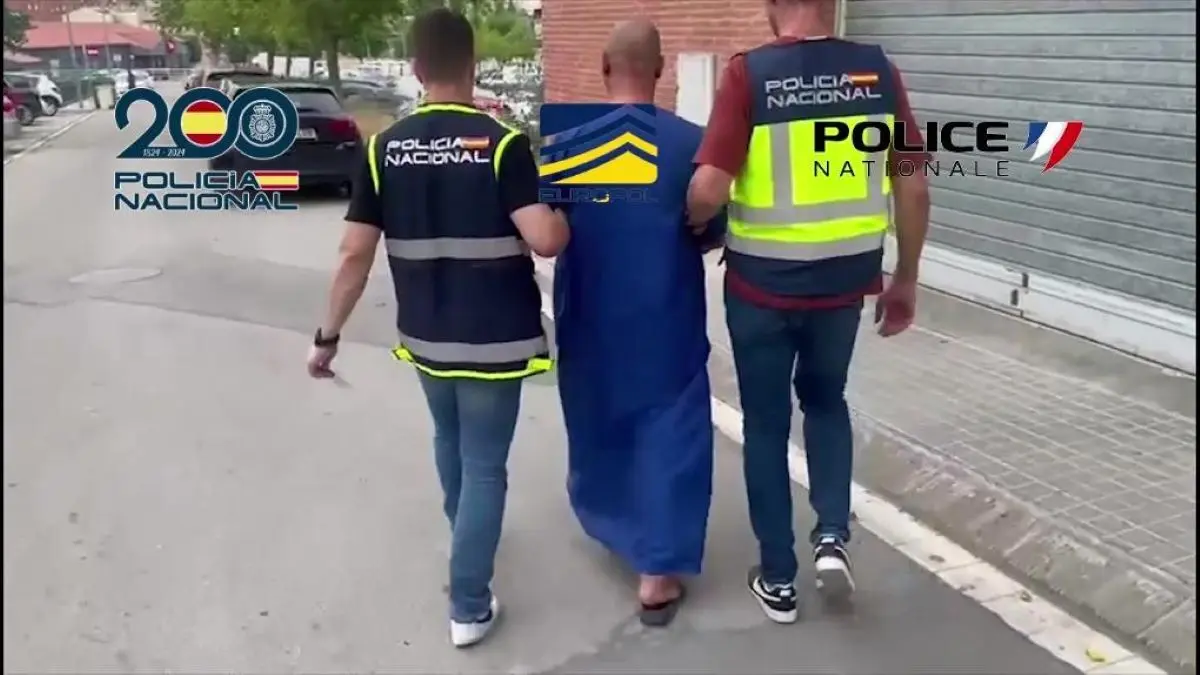Significant Operation Against Trafficking
An extensive operation led by national police forces in collaboration with EUROPOL has resulted in the dismantling of one of the most dangerous migrant trafficking networks operating in Europe. This criminal organization, with its roots spread across Spain, France, Belgium, and the UK, has been involved in the illicit transport of migrants headed to Spain.
The Scope of Operations
This trafficking ring utilized secretive routes and adapted vehicles lacking safety measures to move over 500 migrants in confirmed attempts spanning 68 incidents. Prices charged to these individuals ranged from €350 to €1,500 per person, depending on the route.
Victims, primarily of Moroccan and Algerian origin, were often transported under inhumane conditions, notably including minors, as they were moved overland and across seas to various destinations in Spain and France. In the operations conducted, four residences were searched (two in Spain and two in France), leading to the arrest of seven individuals—four in Spain (Barcelona province) and three in France—among them key leaders and transportation figures of the network.
Investigative Timeline
The police investigation commenced in April 2023, spurred by international cooperation that signaled suspected activities connecting the UK, Morocco, France, and Spain. Patterns indicated that specific routes were frequently exploited by traffickers
The structure of this criminal group was organized and hierarchically defined, showcasing high operational mobility and logistical capacity to move hundreds of people covertly.
Inhumane Transport Conditions
Trafficking Methods Identified
This police operation stems from an investigation that spanned more than 14 months, identifying two primary transport routes: a land route from Almería and Murcia and an international route from the UK through the Calais ferry. In both scenarios, victims were often crammed into vans and sealed trucks, often equipped with false compartments lacking ventilation and basic necessities like food and water.
High Risks and Violations
Most of these victims were crammed into vehicles, often lying down on the floor, enduring harrowing circumstances—including being stuck for up to six hours in vans traversing the Channel, risking their lives in the process.
The trafficking network maintained tight coordination with groups based in Morocco, thus enabling a complete circuit of human trafficking, successfully smuggling more than 500 individuals in the aforementioned cases, with amounts charged between €350 for land transport and €1,500 for clandestine ferry crossings.
Post-Transport Exploitation
The victims were frequently exploited for labor in agricultural sectors across different regions of Spain. Many found temporary refuge in “safe houses” on the outskirts of Paris before their eventual relocation to Spain.
New Routes Discovered
As investigations unfolded, authorities uncovered a new operational method: traffickers brought migrants into the UK as tourists using commercial flights to blend in, maintaining a façade of legality. Once arrived, operatives quickly engaged with accomplices in France to orchestrate clandestine movements to Spain, misrepresenting migrants as cargo or aspects of household relocations to bypass border controls.
Financial Implications of the Operations
The criminal operation generated profits exceeding half a million euros, operating with an advanced logistical framework, a clear hierarchical system, and ties spread across Spain, France, Belgium, the UK, and Morocco.
Coordinated Police Action
From June 13 to June 16, a large-scale coordinated operation with French authorities took place, resulting once more in thorough investigations and the detention of the seven key figures involved in the trafficking network. This operation intended to signify the enduring commitment of national police forces in the fight against international trafficking, particularly in corners of the world where human life is tremendously endangered.
Conclusion
The exposure of this trafficking network highlights ongoing complexities within logistics and transport segments of international law and human rights. As challenges in logistics continue to evolve, such dismantling operations showcase the essential collaboration and persistence required in combating organized crime within traffic logistics. For individuals and businesses needing logistics solutions, partnering with a reliable platform such as GetTransport.com can offer efficient, cost-effective, and global transportation solutions, ensuring transparency in moving goods or personal belongings. Book your transport at the best prices globally with GetTransport.com.
Drawing upon details shared in this operational summary, it’s clear that firsthand experiences often cement the narrative far better than any report or review might illustrate. Fortunately, with GetTransport.com, readers can empower themselves through comprehensive insights into transport logistics, ensuring a seamless experience with competitive pricing and extensive options catered to unique needs. Experience reliability in logistics and transportation: Book now at GetTransport.com.

